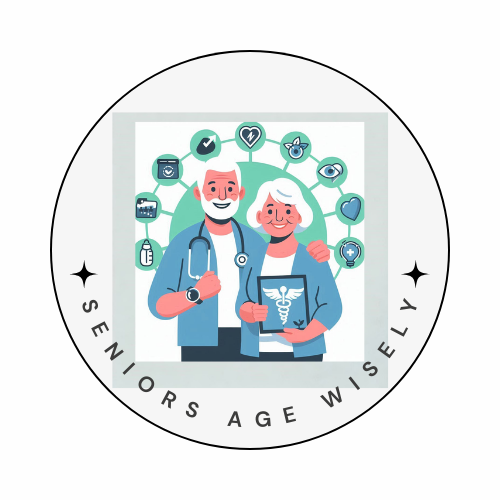
Simple tools that can make a big difference.
If you or someone you love is living with Alzheimer’s or dementia, you know that everyday life can bring unique challenges. But the good news is, there are plenty of helpful tools and supports available to make life a little easier, a little safer, and a whole lot more manageable.
From clever gadgets to small changes around the house, these memory devices for seniors can help folks maintain independence and enjoy a better quality of life. Let’s take a relaxed stroll through some of the most helpful aids out there — no tech jargon or confusing lingo, we promise!
1. Assistive Technology: Tools That Make Life Easier
These devices are designed to support everyday tasks — like walking, remembering appointments, or staying in touch with loved ones. Here are some of the most helpful types of safety devices for seniors with dementia:
Mobility Aids
For those who have trouble getting around, mobility aids like walkers, canes, and wheelchairs are game-changers. They offer support and stability, whether you’re moving around the house or heading out for a walk.
Communication Aids
Staying connected is important, but it’s not always easy. Hearing aids, large-button telephones, and simple voice-to-text devices can help make communication smoother. There are even phones with photo buttons, so you can just press a familiar face to make a call.
Memory Aids
Memory lapses can be frustrating, but aids for Alzheimers patients and aids to help dementia patients like large digital clocks, whiteboards, and smart reminders can help keep things on track. For example, a calendar clock that shows the day, date, and time in big, bold letters can help reduce confusion.
Self-Care Aids
Keeping up with daily routines like taking medication or bathing can be tough. That’s where tools like automatic pill dispensers, shower chairs, or even a toothbrush with a built-in timer come in as very handy devices to help the elderly. There are even voice-activated alarm clocks that respond to simple commands — no buttons needed!

2. Medications That Can Help
While there’s currently no cure for Alzheimer’s or dementia, certain medications can help ease symptoms for you or slow things down.
- Cholinesterase inhibitors like donepezil, galantamine, and rivastigmine may help improve memory and thinking for some people.
- Memantine is often used in moderate to severe cases and can also help with memory and cognition.
Of course, any medication must always be discussed with a doctor. They’ll help find what’s right for your specific needs.
3. Making the Home Safer and More Comfortable
A few thoughtful changes around the house or home can make a big difference. Here’s some helpful aids for seniors with dementia that will help create a more dementia-friendly home:
Declutter the Space
Too much stuff around can be overwhelming and even dangerous. By keeping things tidy and only leaving out what’s needed, it’s easier to find things — and easier to feel calm.
Flooring Matters
Avoid rugs and shiny floors, which can be confusing or slippery. Instead, go for matte flooring that contrasts with the walls — this makes it easier to see and move around safely.
Add Safety Features
Simple additions like grab bars in the bathroom, smoke and heat detectors, and non-slip mats can really help reduce the risk of accidents.
Sensory Comfort
Tools like dementia clocks, soft lighting, calming music, and weighted blankets can help soothe anxiety and create a more peaceful environment.

4. More Helpful Devices Worth Knowing About
Here are a few modern aids that many people don’t know about — but they can be incredibly helpful in locking in life improvements for seniors with Alzheimers or dementia:
- Voice-Activated Alarm Clock: Just say a command like “What time is it?” and it responds out loud — no buttons, no confusion.
- Fall Detection Pendant: This little necklace can automatically detect a fall and send a text message to a caregiver or loved one. It also has a button to press for help in an emergency.
- Universal TV Remote: With big buttons and just a few favorites programmed in, this remote makes watching TV simple and frustration-free.
- Motion Sensor Kits: These small sensors can alert a caregiver if someone is moving around unexpectedly — great for preventing falls or night-time wandering.
5. Support for Caregivers and Families
It’s not just the person with dementia who needs help — caregivers do too.
Support Groups
Organizations in the U.S. like the Alzheimer’s Association offer wonderful support groups, both in person and online. Talking to others who “get it” can be a real comfort.
Resources for Caregivers
The Alzheimer’s Association also offers tips on how to manage stress, find respite care, and even connect with professional counselors. No one should have to go through this alone.
In a Nutshell
Living with Alzheimer’s or dementia brings its own set of challenges, but there’s a wide range of aids — from simple tools to supportive communities — that can make daily life more manageable.
Whether it’s using a smart alarm clock, installing motion sensors, or joining a caregiver support group, every little bit of help adds up. These tools aren’t about “fixing” anything — they’re about making life safer, more comfortable, and more joyful, one small step at a time.
So if you or a loved one could use a bit of extra support, don’t hesitate to explore what’s out there. A small change today might make a big difference tomorrow.

Affiliate Disclosure
Here’s a little transparency: Our website contains affiliate links. This means if you click and make a purchase, we may receive a small commission. Don’t worry, there’s no extra cost to you. It’s a simple way you can support our mission to bring you quality affiliate marketing content.
